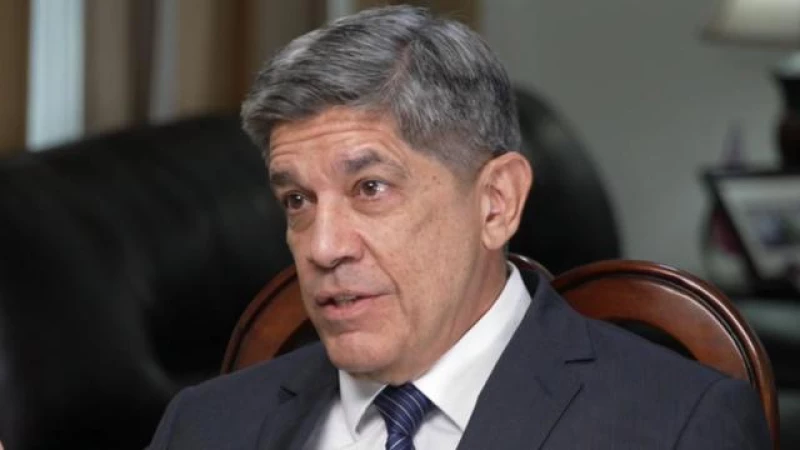Washington — In an exclusive interview with CBS News, a top Cuban official expressed Cuba's willingness to accept more deportation flights from the U.S. for Cuban migrants who have been arriving at the southern border in large numbers over the past three years.
After a two-year hiatus, deportation flights to Cuba were resumed last year by the U.S. Since then, one flight carrying Cuban deportees has been sent to Havana each month.
During the recent CBS News interview, Cuba's Deputy Foreign Minister Carlos Fernández de Cossío stated that Cuban authorities are prepared to receive more than one deportation flight per month.
"We are open to receiving more flights," Fernández de Cossío mentioned, as he visited Washington this week to engage in migration discussions with officials from the Biden administration.
Since the 1959 Cuban Revolution, the relationship between the U.S. and Cuba has been marked by deep contention. Despite being Cold War-era adversaries, the two countries continue to hold differing views on various issues, including Cuba's human rights record, its associations with China and Russia, and the enduring American trade embargo on Cuban goods.
Collaboration on Immigration Between Washington and Havana
Washington and Havana have a history of cooperation on immigration issues, exemplified by the 1994 U.S.-Cuba Migration Accords. This week, officials from both countries are engaged in discussions regarding this agreement. The collaboration between the two nations has become more pronounced in recent years due to the significant influx of Cuban migrants arriving at the U.S.-Mexico border.
Since the commencement of fiscal year 2021, Customs and Border Protection data indicates that the U.S. has processed over 450,000 Cuban migrants at the southern border. The flow of Cuban migrants to the U.S. border has decelerated following the implementation of programs by the Biden administration, which permit certain Cubans to enter the U.S. legally or present themselves at an official border crossing.
In a recent interview, Fernández de Cossío attributed the recent exodus from Cuba to American policies, such as the U.S. embargo and the Cuban Adjustment Act of the 1960s, which established a unique path to permanent U.S. residency for specific Cuban migrants. Fernández de Cossío emphasized that only Congress has the authority to modify this law.
Furthermore, Fernández de Cossío accused the U.S. of attempting to undermine the Cuban economy through sanctions. He rejected the notion that internal economic mismanagement and oppressive measures by the Cuban government have also contributed to the migration of Cubans, a stance advocated by the U.S. authorities.
"Fernández de Cossío Highlights U.S. Policies Driving Cubans to Leave"
"You can speak about other factors, but if you have a consistent policy by the most powerful economy in the world to try to destroy the livelihood of a whole population, 11 million Cubans, it is logical to expect people, a segment of the population, to want to leave the country," he said.
In 2023, the U.S. Department of Homeland Security assessed that "Cuba's deteriorating economic conditions and political repression continue to increasingly drive Cubans out of their country."
Fernández de Cossío also cited the lack of some legal channels for Cuban citizens to come to the U.S. for illegal crossings along the southern border by Cubans.
He urged the State Department to resume the processing of tourist and short-term visas in Havana. The Biden administration restarted immigrant visa processing in Cuba, but short-term visa seekers in Cuba still have to travel to a third country to have their cases processed.
Fernández de Cossío said U.S. officials informed him they would resume full visa processing in Cuba in the future.
Representatives for the State Department did not respond to requests to comment on Fernández de Cossío's remarks.
Fernández de Cossío expressed some concern about additional U.S. sanctions if former President Donald Trump is elected in November. During Trump's tenure, the U.S. had a more aggressive stance towards Cuba, reversing the Obama administration's attempt to normalize relations with Havana.
"The potential for further economic sanctions against Cuba, regardless of the election outcome, is a source of concern for us. The Biden administration has largely upheld the policies established by the Trump administration and even introduced some of its own," he remarked. "It would not be surprising if they decided to pursue this path. While we view it as unjust and unethical, we must acknowledge the possibility and be wary of the implications."







